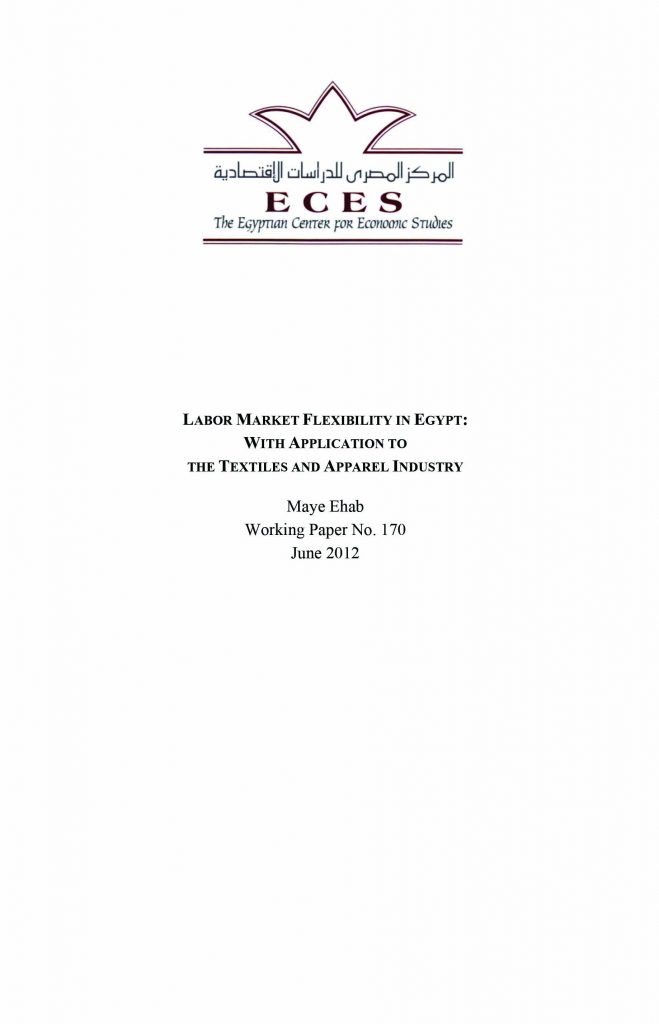Abstract:
Labor market rigidity is a major constraint to doing business in Egypt where labor regulations are perceived as a major constraint to 27 percent of surveyed firms in Egypt. This rigidity is considered one of the causes of high and persistent unemployment. This paper addresses the effect of labor laws and institutions on the three dimensions of labor market flexibility, namely wage, functional and numerical flexibility. Then, it identifies the effect of labor market rigidities on the performance of the Egyptian labor market, specifically its effect on employment in the textiles and apparrel industry. The labor laws and regulations affected firms differently according to size and ownership structure where small firms and private firms are the most affected. In addition, the laws affect differently women employment and male employment. Some proposed policies are introduced. First, striking a balance between workers’ rights and flexibility in doing business is crucial. Second, it is important to revise the financial benefits given to workers because the existing package is negatively affecting employers and constraining hiring activity. And finally, awareness campaigns about the laws and regulations are required to insure that the firms do not create rigidities for themselves due to ignorance of the existing laws and their implications.

